This Peruvian Inspired Coleslaw takes the flavors of the best green sauce in history and makes it outdoor eating-friendly. Unlike most aji verde (literally green chili pepper) sauces, which have a mayonnaise base, this version eliminates the need for refrigeration. Instead, crisp red and green cabbages get a mildly spicy green vinaigrette dressing. This is an economical and quick-fix great side dish to serve at your next BBQ or cookout.
This post was originally published in 2018. I’ve updated the images and made the instructions more concise.
What makes this Peruvian?
Well, nothing, really. The inspiration behind this Peruvian Inspired Coleslaw is the addictive green sauce, or aji verde, served at most Peruvian chicken joints. Because I find myself licking the sauce off of my fingers, I figure I might as well develop a recipe that features it. But, since I want to serve this coleslaw with grilled meats, I also wanted it to be safe at warmer temperatures. All the recipe stars aligned, and this riff on a classic Peruvian sauce was born.
I will say that even though this isn’t an authentically Peruvian recipe- I’m not Peruvian after all- countless experts have weighed in. The military has blessed us with a handful of Peruano friends who have signed off on this. In addition, Hector’s many trips to Peru on humanitarian missions have given him even more insight into the cuisine. He approves wholeheartedly, but that’s not saying much. He approves of most things that are edible.
How is Aji Verde usually served?
The flavor base for the coleslaw is very similar to aji verde sauce. The only exception is that I omitted the mayonnaise. Mayonnaise, a green chili of some kind (I like to use serranos), aji amarillo (yellow chili pepper) paste and lime juice are the flavor bases. Additional spices and flavorings will vary from recipe to recipe, but those are the basics.
Aji verde is commonly given to you alongside a few pieces of pollo asado, which is a gift. Chicken marinated for hours is spit-roasted until slightly charred and crispy. The aji verde is spooned into small plastic cups and placed on your plate next to things like fried yuca or rice and beans. When I tell you it’s heaven on a plate! I’m not lying.
What do I need to make this Peruvian Inspired Coleslaw?
Cabbage forms the base of the coleslaw. I prefer to use a mix of red and green cabbage for looks. The great thing about this recipe is that you can use a bagged shredded cabbage mix if you are pressed for time. Additionally, fresh carrots, red bell pepper (more color), jalapeños, white onion, fresh garlic, and cilantro round out the veggie component of this recipe. Extra virgin olive oil, fresh lime juice, and kosher salt make up the rest of the dressing.
You can prepare this dressing in a blender or a food processor. The rest of the recipe requires only a cutting board, knife, and bowl to toss everything in. Too easy.
What kind of cabbage works best for this Peruvian Coleslaw?
I use half a head, each, of red and green cabbage, or about to 2 pounds. Green cabbage is tender when fresh, and when the head is small (about 6-8-inches in diameter). If you only want to use green cabbage, that’s fine. The other ingredients in the recipe will still give the slaw some color. I wouldn’t make this (or any coleslaw) with just red cabbage, though, because it doesn’t offer much in the way of appearance, and it tends to stain people’s mouths and teeth. Red cabbage leaves are also tougher than green. You can avoid too much toughness by shredding it thinly, but again, I don’t recommend making this with just red cabbage.
Use a sharp chef’s knife to thinly shred both cabbages. Because I’m already using the knife to do everything else, I prefer to save myself more dishes and skip using the shredder. I also find that it can shred the cabbage too much. You want the cabbage to have some crunch left in it, so shredding it too thin can cause it to become mushy too fast. But, if you know you’ll be eating it within a day, you can use the shredder attachment of your food processor to do this. If you’re looking to skip this altogether, pick up 2-pounds of bagged, shredded coleslaw or cabbage.
Shred or julienne your carrots the same way you did your cabbage (using a grater, food processor, or knife). The carrots add a touch of sweetness to this coleslaw. I prefer to julienne my carrots because the thinner the carrots are, the more water they’ll release later. Again, you can also get help from the produce section by using bagged shredded carrot.
Add the shredded veggies to a large mixing bowl for later.
How do I make the Peruvian dressing?
This is a vinaigrette-style dressing. That means we’re making an emulsified sauce by whisking (or pureeing) oil and acid- lime juice and olive oil- together until the two are forced to combine. But, we’re also creating tons of flavor by using aromatics like red bell pepper, onions, garlic, and a little hit of spice from jalapeño peppers. Rough chop the peppers, onion, garlic cloves, and jalapeños. Since we’re going to blend them, we don’t need to be precise.
Begin by adding the garlic and onions to the bowl of your food processor or blender. Because onions and garlic are more pungent than the remaining veggies, they need more time with the blades. Can you imagine biting into a big chunk of one of these? Pulse these together at low speed for 30 seconds, then scrape down the bowl using a rubber spatula.
Add the red bell and jalapeño peppers. Now, if you’re a fan of really spicy foods, you can add another half– of a jalapeño. I’m a big fan of spicy- my ulcer? Not so much, but even I have to admit, more than 2 jalapeños are too much.
Pulse this mixture again for 30 seconds to break them up into finer pieces.
Next, add the cilantro leaves. Blend everything together until the mixture resembles a pico de gallo or a thick salsa.
Use your rubber spatula to scrape down the bowl. Just make sure no large chunks remain. This dressing isn’t going to be smooth, but you also don’t want clumps of these veggies dominating the coleslaw.
Add the lime juice and the salt.
What kind of oil is best for dressings?
When you’re thinking about what kind of oil to use in your dressings, select one that you can sip from a spoon. Usually, that eliminates vegetable or peanut oils. Neither of them have much flavor. You also want to be mindful of what kind of flavor your oil has. Robust oils like sesame, walnut, or flavored oil should complement the rest of the flavors in your dressing. Here, we want something that gets the emulsifying job done without overpowering the rest of the flavors in the coleslaw. Extra virgin olive oil is light in flavor without coating the palate.
Turn the food processor on low and slowly drizzle the olive oil in through the chute (or the hole in the blender’s lid). Gradually adding the oil will create that emulsion because the liquid and oil have a chance to combine without the oil separating from it.
Use a spoon to taste the dressing to see if you want to add a bit more salt. I usually wait until I’m ready to serve to salt the coleslaw overall because salt causes the water in the veggies to leach out more.
Can I make the dressing for the coleslaw ahead?
You can make this Peruvian dressing 2 days ahead and store it in a jar in the fridge until you’re ready to use it. Before tossing your cabbage and carrots in it, give the jar a vigorous shake to re-emulsify the dressing. Don’t make it too far in advance (more than 2 days) because it still contains fresh veggies, which will start to brown and taste funky.
Pour the dressing over the cabbage and carrots in the mixing bowl and use a pair of tongs to toss everything together.
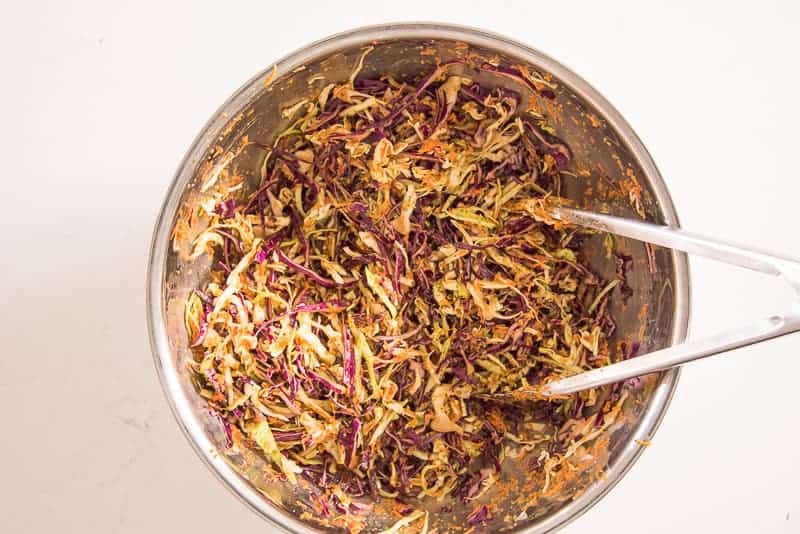
Transfer the coleslaw to a pretty little serving bowl and allow the flavors to blend for at least thirty minutes before serving. You can even leave it to sit, refrigerated, for up to twenty-four hours. The longer, the better because it means that coleslaw is deepening in flavor.
The veggies may produce some water in the bottom of the bowl, but a quick toss should set things right. You can also drain off some of the water if you prefer a drier coleslaw. The great thing about this coleslaw is that you don’t have to refrigerate it if you don’t want to, though it does taste better chilled.
What are some proteins I can serve this Peruvian Inspired Coleslaw with?
This coleslaw goes amazingly well with all types of grilled and roast meats. Here are some I always serve with it:
Pinchos (Grilled Pork Skewers)
Pernil (Puerto Rican Roast Pork Shoulder)
Guava BBQ Air Fryer Chicken Wings
How do I store leftover coleslaw?
Pack any leftovers in a food storage container and store this Peruvian coleslaw in the fridge for 2 days. After that, it’ll begin to grow soggy and lose its crunch. And, no, you can’t freeze leftovers. It would taste like boo-boo after you thaw it.
Be sure to pin this recipe for your next outdoor cookout. Serve this BBQ-friendly side dish at all your gatherings, and make sure to share it with your crew.
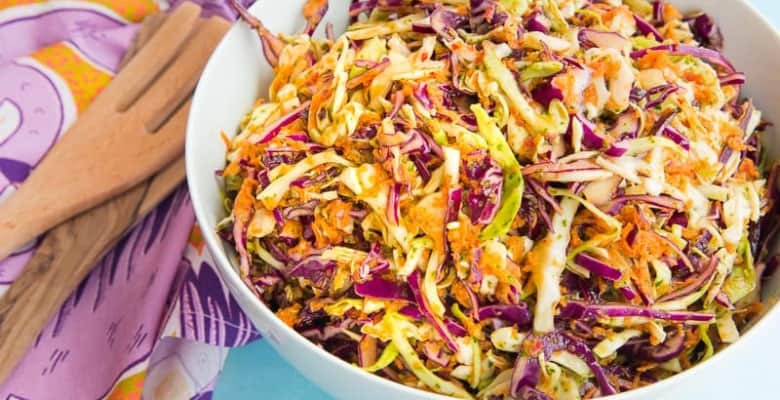
Peruvian Inspired Coleslaw
at Sense & EdibilityEquipment
- food processor or blender
Ingredients
- 2 pounds (906 grams) red and green cabbage shredded, or about 8 cups
- 3 large carrots peeled and julienned, or about 2 cups
- 1/2 large white onion (about 1 cup) peeled and roughly chopped
- 2 cloves garlic peeled and roughly chopped
- 1 large red bell pepper (about 1 cup) roughly chopped
- 1/2 large jalapeño pepper (about 1/4 cup) deseeded and roughly chopped, optional
- 1 bunch cilantro (1 cup) chopped
- 1 tablespoon kosher salt plus more to taste
- 2 large limes juiced (or 1/4 cup)
- 1 cup extra virgin olive oil
Instructions
- Add the shredded cabbage and carrots to a large mixing bowl, then set this bowl aside while you prepare the Peruvian dressing.
Prepare the Peruvian Dressing
- Add the garlic and onion to the bowl of your food processor or blender. Pulse the two together for 30 seconds to break them up slightly. Stop the machine and use a rubber spatula to scrape down the bowl.
- Add the red bell pepper and jalapeño pepper to the food processor. Pulse again for 30 seconds to break up the peppers. Scrape the bowl down once again.
- Next, add the cilantro leaves, and pulse the processor together for 15-20 seconds, or until the mixture resembles pico de gallo or a thick salsa.
- Add the lime juice and the salt. Start the food processor and slowly drizzle in the olive oil through the chute in the lid. The dressing should be smooth and cohesive with no puddles of oil in the mixture.
Dress the Cabbage and Carrots
- Pour the dressing over the shredded cabbage and carrots in the mixing bowl. Use a pair of tongs to toss the veggies in the dressing ensuring they're fully coated. Taste the coleslaw and adjust the seasoning by adding more salt as needed.
- Transfer the coleslaw to a non-reactive ceramic or glass bowl, if you mixed it in a metal bowl, and refrigerate for at least 30 minutes prior to serving.
- Serve cold or at room temperature.
Notes
Swaps and Substitutions:
- Use bagged shredded cabbage or coleslaw mix instead of hand-shredding cabbage at home.
- Use all green cabbage or white cabbage in place of the red and green cabbage mix.
- Replace the carrots with bagged shredded carrots.
- Replace the carrots with jicama.
- Use yellow instead of white onion.
- Increase the spice level by using 1- 1 1/2 jalapeño pepper *this will make it very spicy* or omit the jalapeño completely
- Use grapeseed oil instead of olive oil.
- Decrease the salt to 2 teaspoons for a lower sodium recipe.
Instructions for Make-Ahead Dressing:
- Make this Peruvian dressing as instructed.
- Store the prepared dressing in a sealed jar in the fridge for 2 days.
- Before tossing the cabbage and carrots in it, shake the jar vigorously to re-emulsify the dressing.
Serving and Storage Instructions:
- The veggies may produce some water in the bottom of the bowl, simply toss the coleslaw just before serving to redistribute the dressing. You can also drain off excess water if you prefer a drier coleslaw.
- This Peruvian Coleslaw doesn't have to be refrigerated, but it does taste better chilled.
- Pack any leftovers in a food storage container and store this Peruvian coleslaw in the fridge for 2 days. After that, it'll begin to grow soggy and lose its crunch.
- Leftovers should not be frozen.
Nutrition

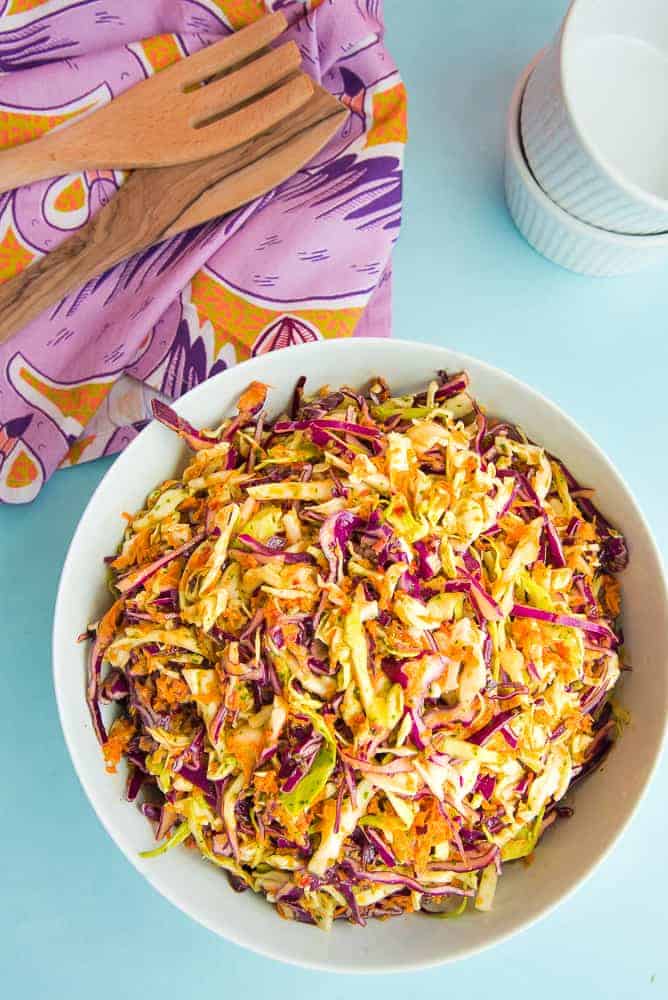
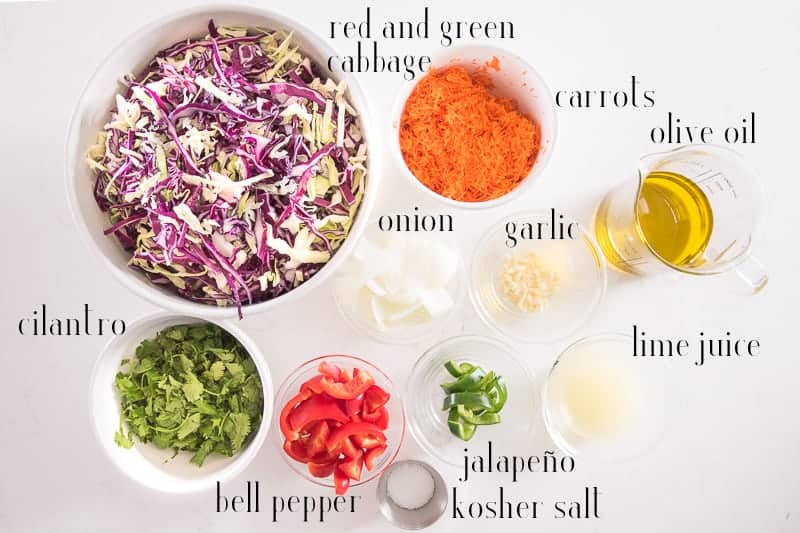
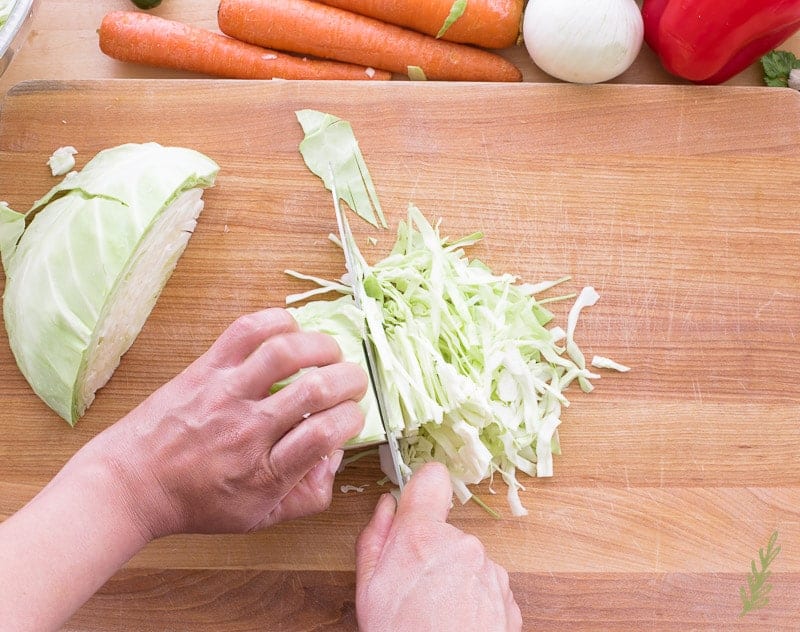
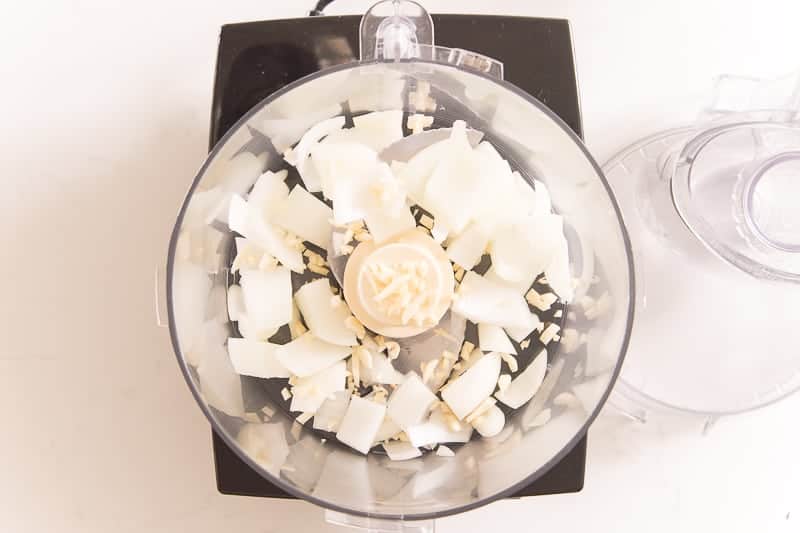
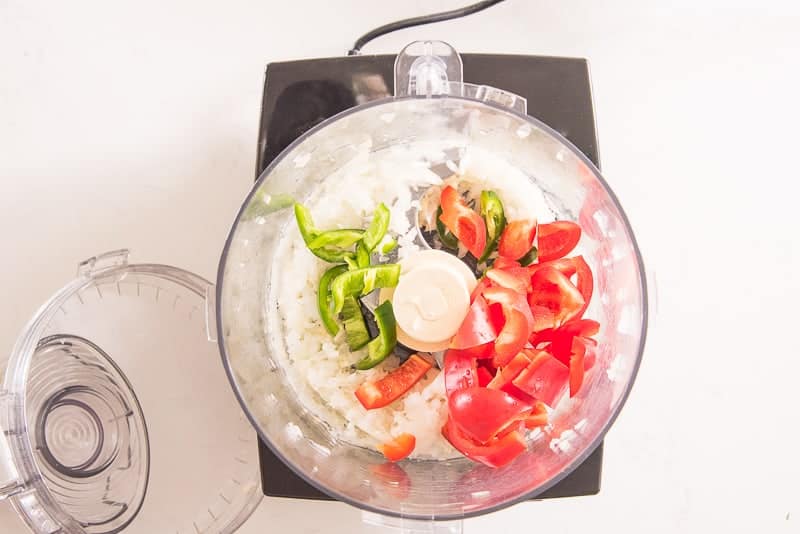
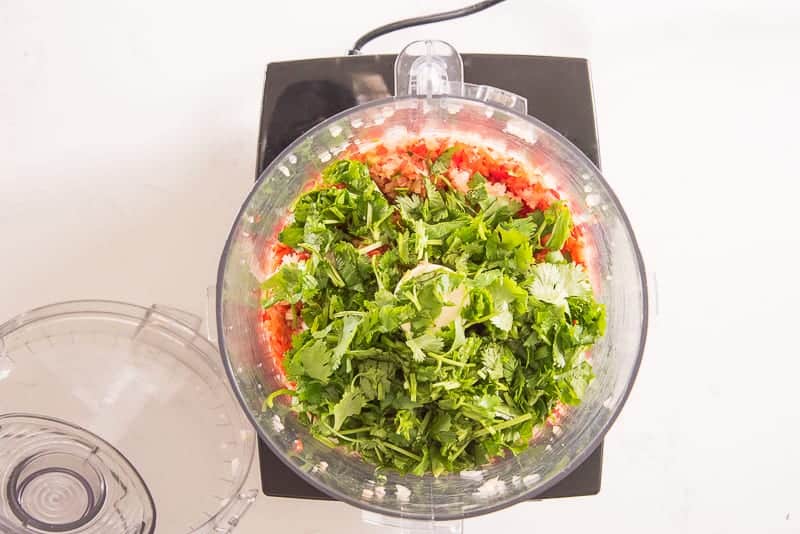
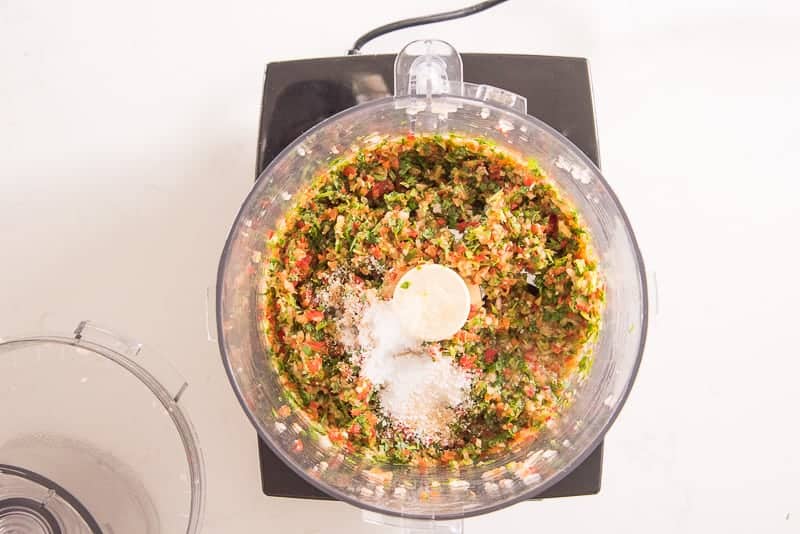
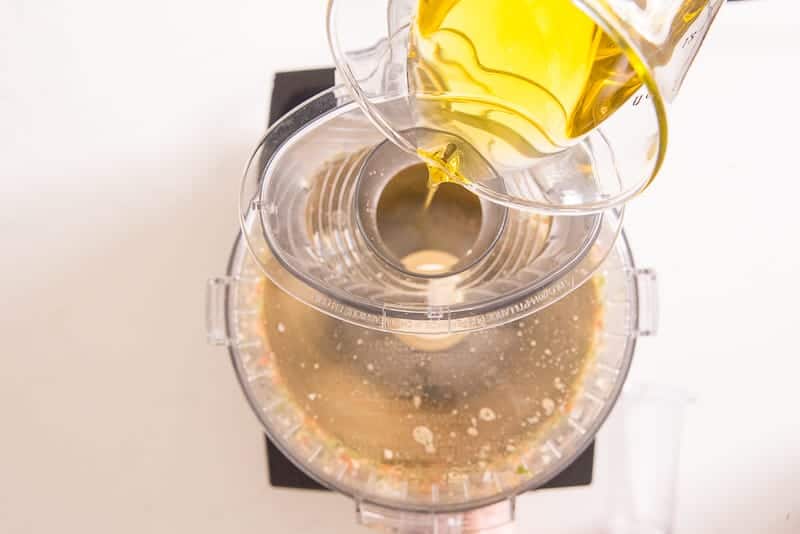
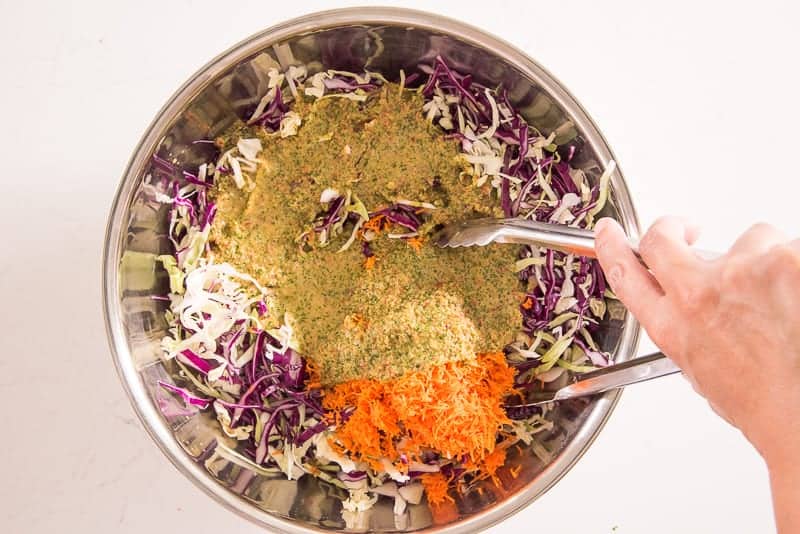
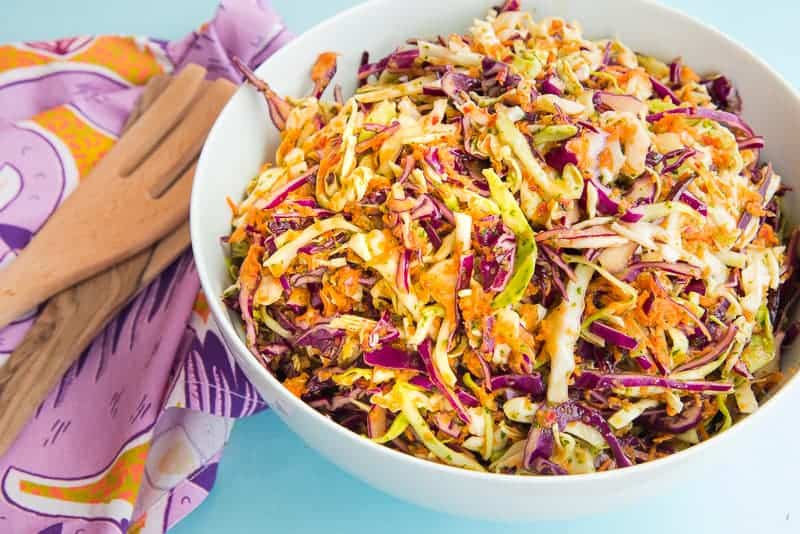
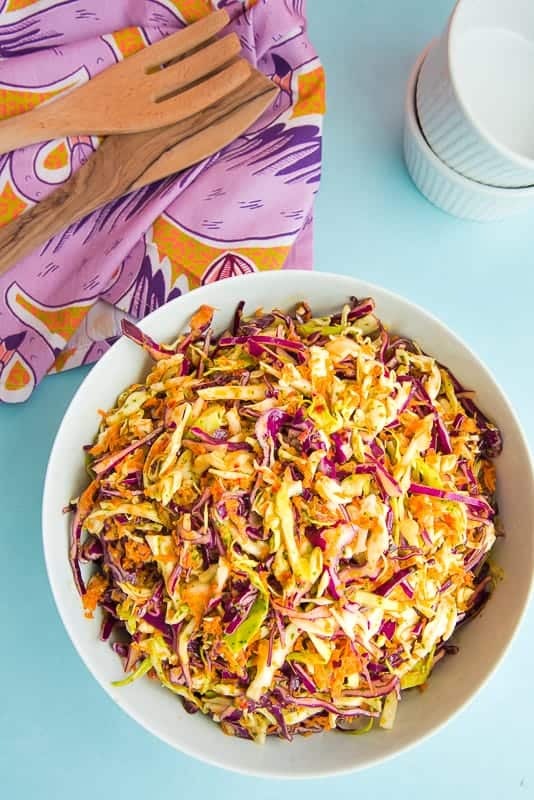
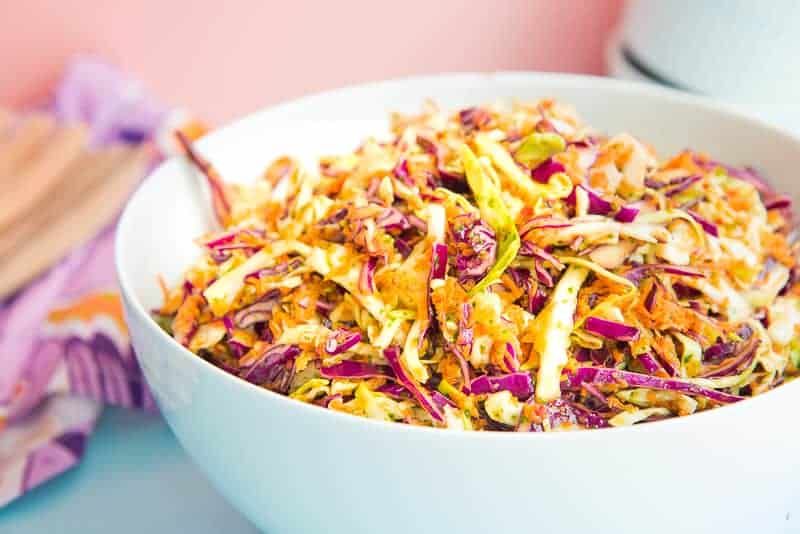
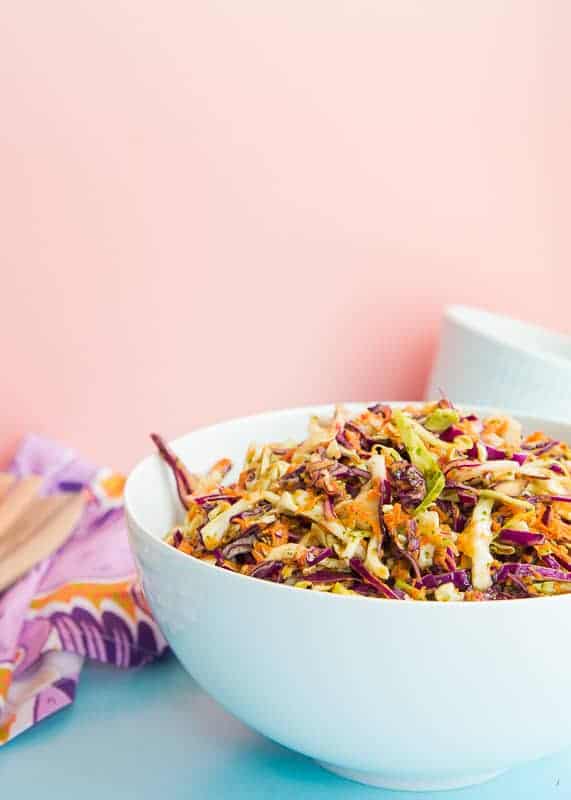
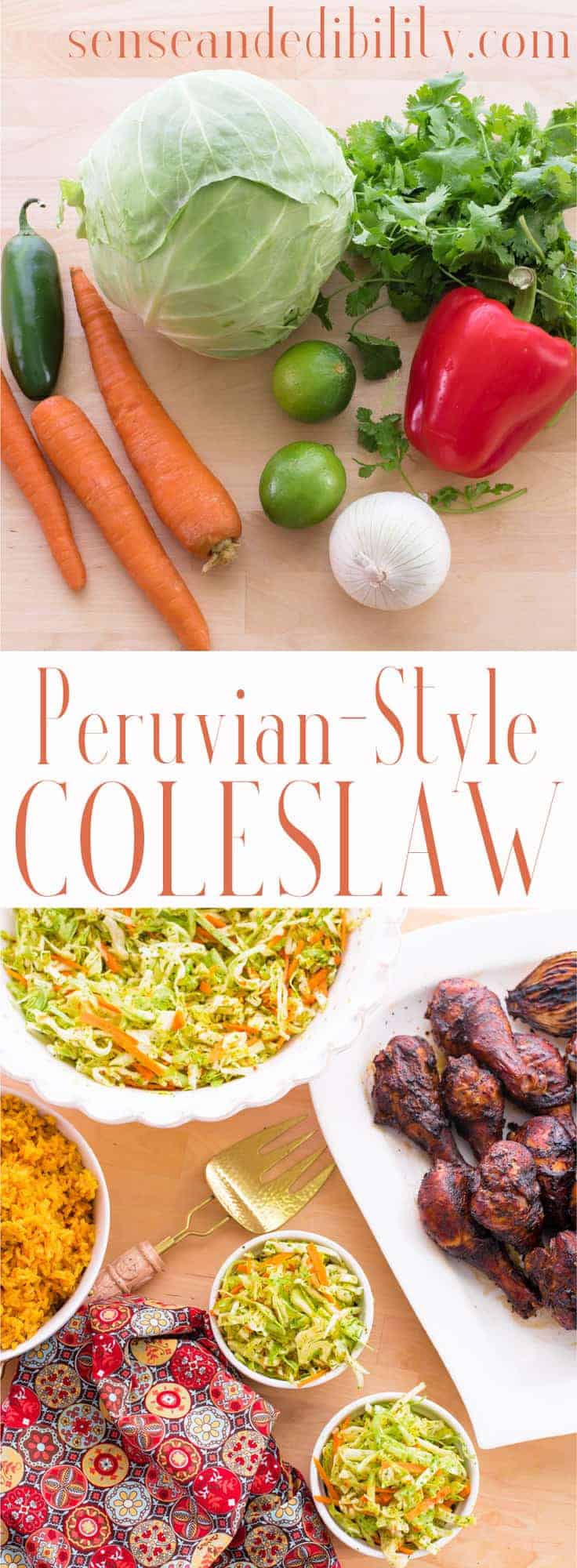

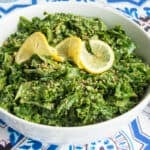
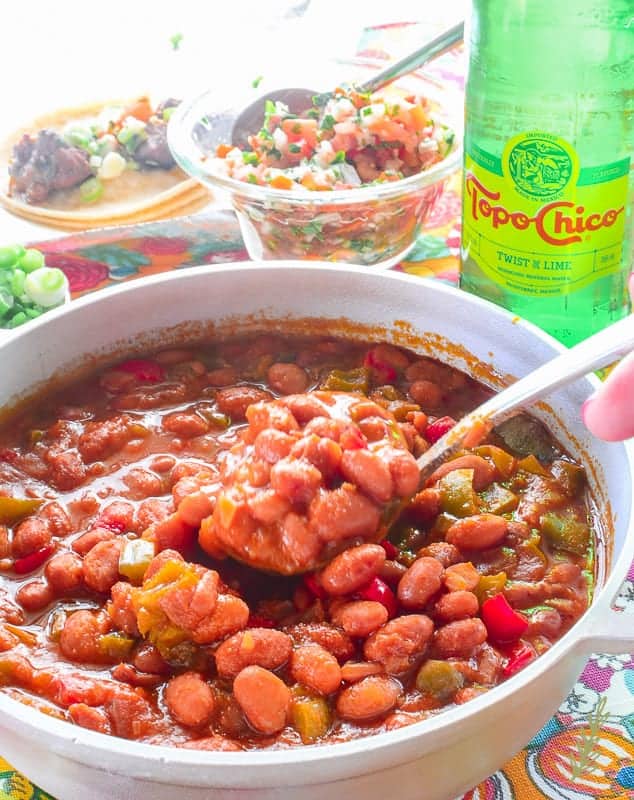


Yum! Marta, this was so flavorful and crisp. Nothing says summertime to me as coleslaw does.
This is a great summer recipe, Natalie. Hope you try it soon.
This Peruvian-style coleslaw is amazing! Full of flavor! I made this with dinner tonight and everyone loved it! A definite keeper.
That’s great to heat, Albertina.
The addition of the cilantro and peppers made this such a great side dish or even a great add to top tacos, yum!
My husband loves it on fish or shrimp tacos, Jen.
I have never made coleslaw and this was so good and so easy for me to make !!
I hope you give it a try, Cynthia.
I love coleslaw, especially during the summertime. I am so excited about making this again this coming weekend!
You’re going to love it, Sharon.
This is my kind of cole slaw! Looking forward to making it again and adding it to our monthly meal plan.
I love that it’s so cookout friendly, Deborah. Hope you like it.